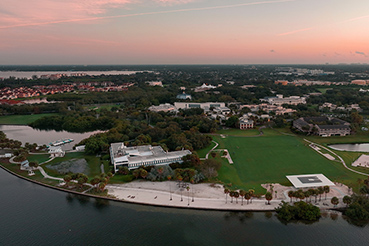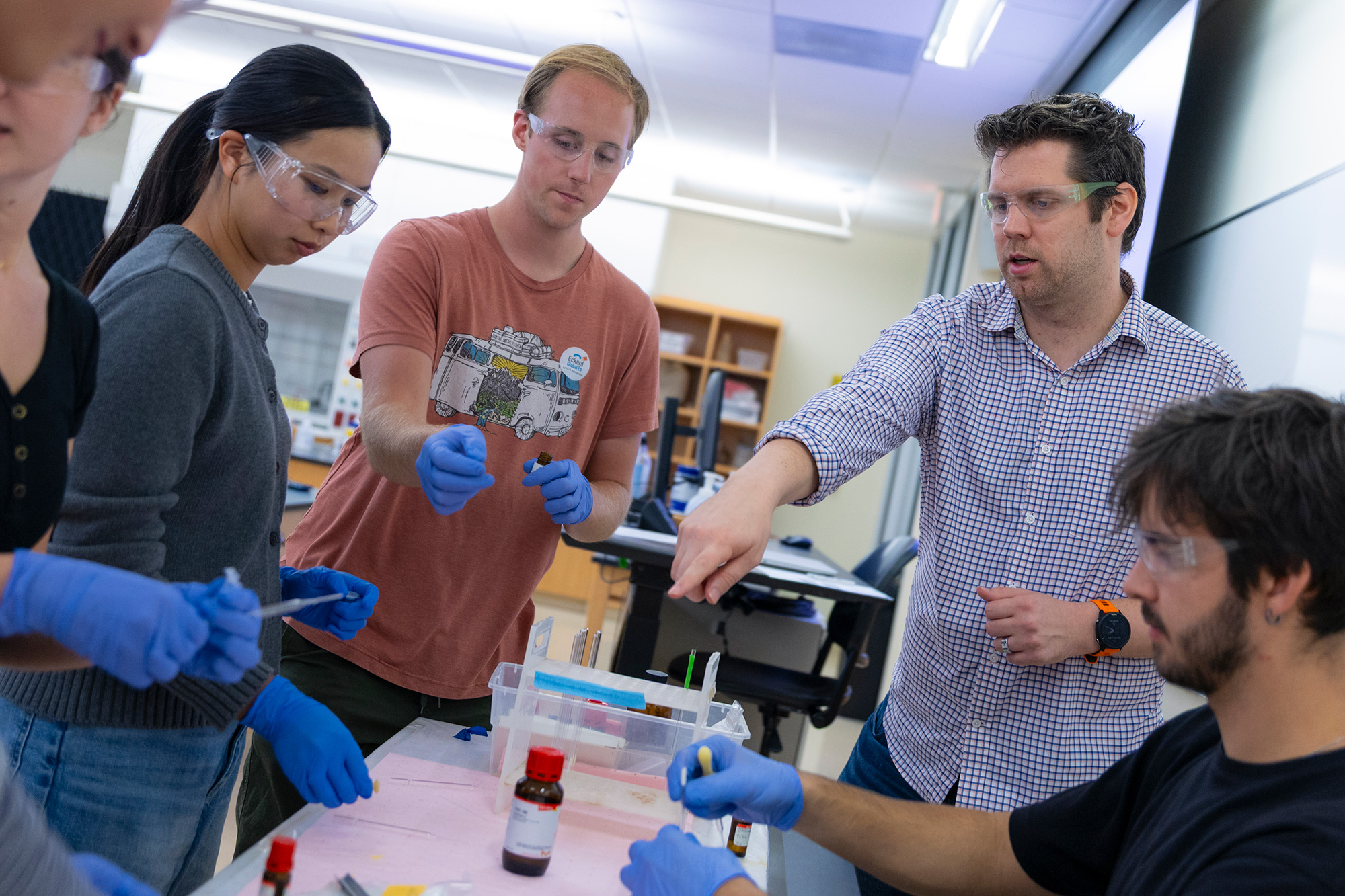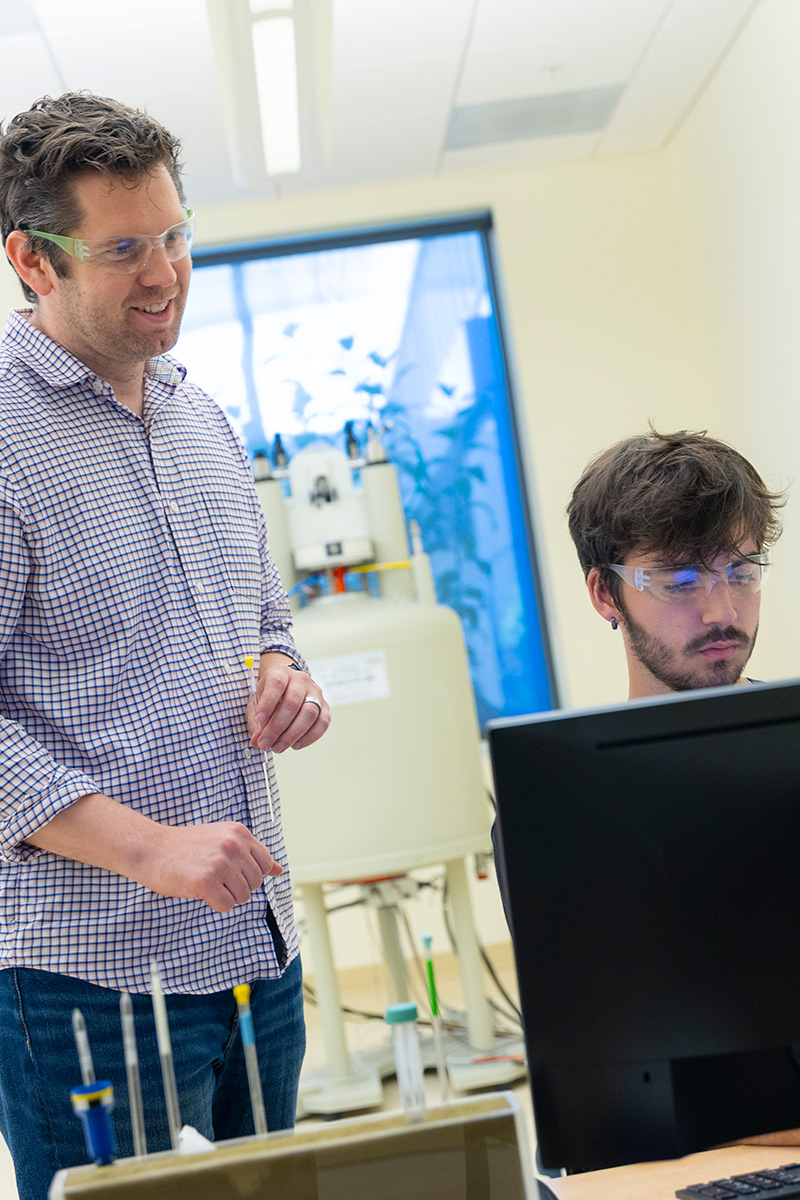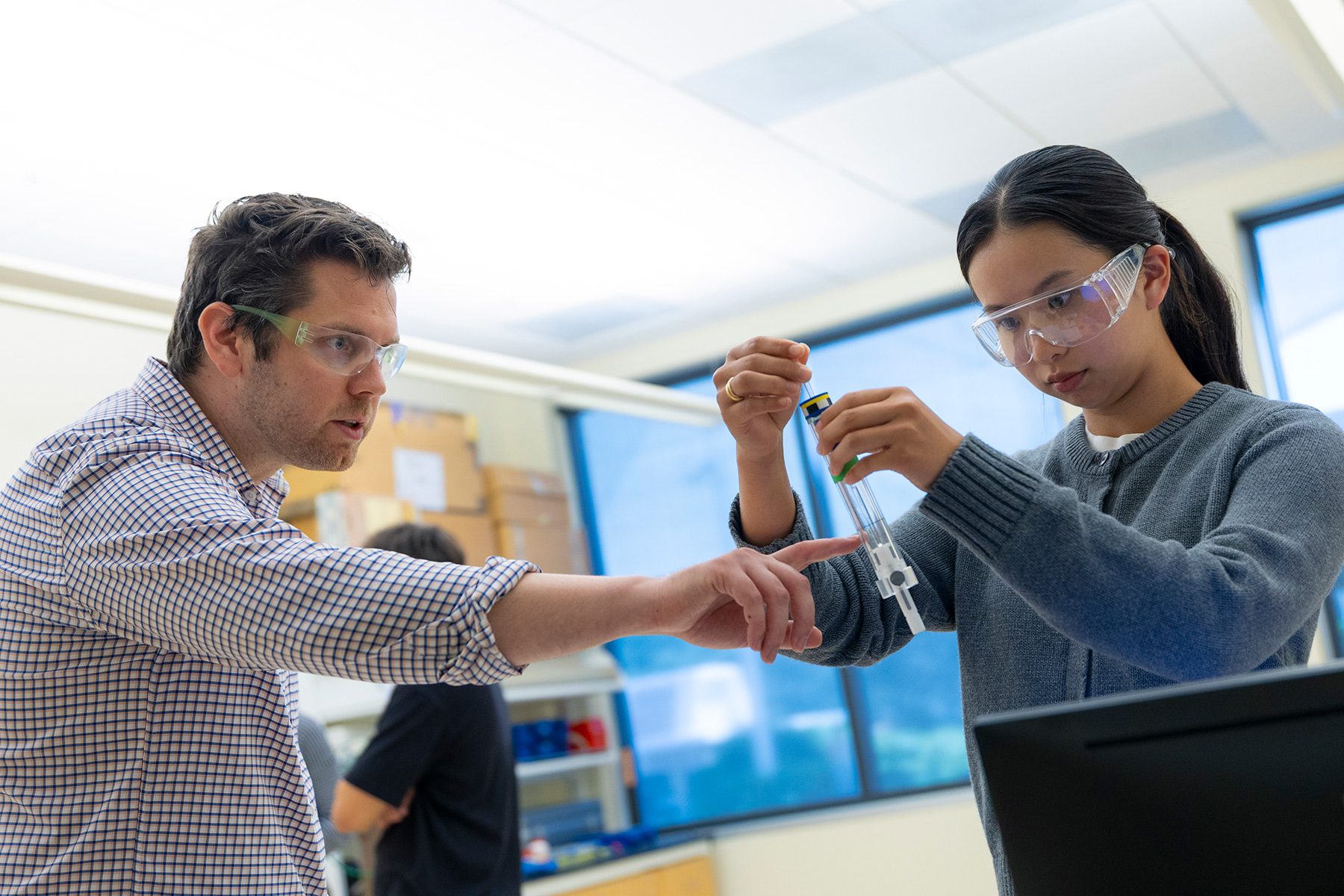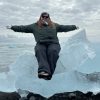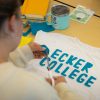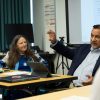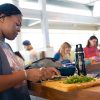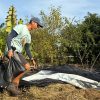When he’s not teaching or in the lab, Eckerd College’s new assistant professor of chemistry, Thomas Bearrood, Ph.D., is learning—on foot—about all St. Petersburg has to offer.
“Running has helped me explore St. Petersburg,” Bearrood says. And he is learning which plants, especially tropical fruits, thrive in his new home.
Originally from Minnesota, Bearrood says his path toward chemistry started with a love of science, technology, engineering and mathematics influenced by his parents. Specifically, he says he “liked that with chemistry [he] could work in a lab and have a positive impact on human health.”
After earning his B.A. in chemistry and mathematics from St. Olaf College, Bearrood completed his Ph.D. in chemistry at the University of Illinois at Urbana-Champaign. He then did postdoctoral research as an American Cancer Society Postdoctoral Fellow in chemical biology at Stanford School of Medicine.
His research focuses on the aldehyde dehydrogenase family of enzymes. They perform a variety of functions in the body, from influencing cell signaling to detoxification of dangerous molecules. Most interesting to Bearrood is these enzymes’ connection to cancer. “It is very easy to kill cancer,” he says. “The challenge is doing so without killing healthy cells. Classical chemotherapy kills cancer cells, but it also kills healthy ones.”
“The ALDH family contains promising targets for new anticancer drugs,” he explains. “The challenges are figuring out what individual family members do and designing selective drugs for them.”
Bearrood joins the Eckerd community after spending years in large university lecture halls and research facilities. The smaller campus, he says, facilitates personal connections. “It’s nice to walk into a class of 25 instead of a lecture hall of 100,” he adds. “I get to know my students, learn their names and discover what drives them as individuals.”
He jokes that his life’s journey from Minnesota to Illinois to California and now to Florida has just traded one natural disaster for another. “First blizzards, then tornados. California had both earthquakes and fires. Now, there is the chance of hurricanes in Florida. At least with hurricanes, you can see them coming.”

